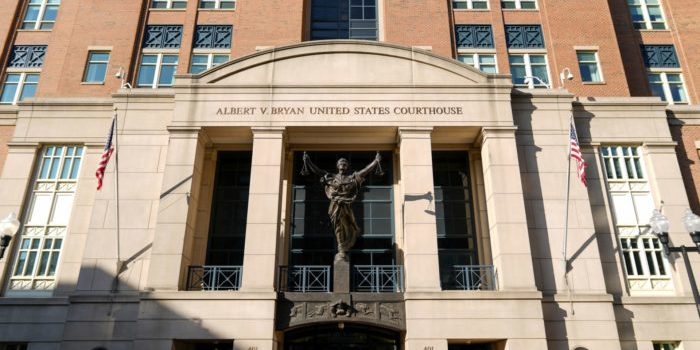(José Niño, Headline USA) Does the United States District Court for the District of Columbia have excessive foreign influence?
The United States District Court for the District of Columbia, which has presided over numerous high-profile cases challenging President Donald Trump’s executive authority, consists of 15 active judges, including Chief Judge James Boasberg.
Remarkably, five of these judges were born outside of the United States, according to a report by Beth Brelje, an elections correspondent for The Federalist.
A Third Of All DC District Judges Were Not Born In United Stateshttps://t.co/lkbT6wZaXY
— The Federalist (@FDRLST) March 25, 2025
The presence of foreign-born judges is a relatively recent development in this court. Besides the 15 active judges, there are 10 senior judges who occasionally handle cases. These senior judges, appointed as early as Ronald Reagan’s administration in the 1980s, were all U.S.-born
However, this trend changed in 2014 when former President Barack Obama appointed Judge Tanya Sue Chutkan, born in Kingston, Jamaica.
Chutkan arrived in the U.S. by 1979 and attended George Washington University. Before her federal appointment, she had not previously served as a judge. She currently oversees a legal challenge against the Department of Government Efficiency’s (DOGE) efforts aimed at reducing excessive government spending.
Obama also appointed Judge Amit P. Mehta, who similarly lacked previous judicial experience.
Mehta, originally from Patan, Gujarat, India, immigrated to the U.S. at age one and was raised in Maryland. He is overseeing four civil cases related to the January 6th events, seeking to hold Trump accountable for injuries and alleged wrongdoing.
Former President Joe Biden nominated three additional foreign-born judges.
Judge Ana Cecilia Reyes, appointed in 2021 without prior judicial experience, was born in Montevideo, Uruguay. After brief stays in Spain and Louisville, Kentucky, where she grew up,
Reyes became the first openly LGBT Latina judge appointed to this court. She notably issued a preliminary injunction against Trump’s executive order on “gender dysphoria,” ruling it incompatible with military readiness standards.
Judge Amir Hatem Mahdy Ali became the court’s first Muslim and Arab American judge. Born and raised in Canada to Egyptian parents, Ali became a U.S. citizen in 2019.
Prior to his judicial appointment in 2024, Ali volunteered for Biden’s 2020 campaign and worked in various nonprofits. Ali has openly criticized Trump’s 2017 travel restrictions affecting predominantly Muslim countries, describing them as driven by prejudice and intolerance.
In the middle of February, Judge Ali single-handedly reinstated $2 billion in USAID funding to foreign nonprofit contractors, a decision reversing a temporary freeze implemented by the Trump administration.
The most recently appointed foreign-born judge is Sparkle Sooknanan, confirmed shortly before Biden left office and sworn in on January 2, 2025. Born in Trinidad and Tobago, Sooknanan moved to the U.S. at age 16 and graduated from Brooklyn Law School in 2010. She previously clerked for Supreme Court Justice Sonia Sotomayor and served as principal deputy assistant attorney general in the Civil Rights Division under Biden.
Last week, Sooknanan ruled to reinstate Democrat Susan Grundmann to the Federal Labor Relations Authority, preserving a Democratic majority.
Notably, all five foreign-born judges currently serving on the D.C. District Court have presided over cases involving Trump’s policies or administration, raising concerns about potential judicial activism.
In light of this trend in the D.C. District Court, Brelje argues that the United States appears to be experiencing a form of “soft coup,” not one involving violence or overt force, but one executed through judicial actions that systematically limit executive authority and policy implementation.
José Niño is the deputy editor of Headline USA. Follow him at x.com/JoseAlNino

